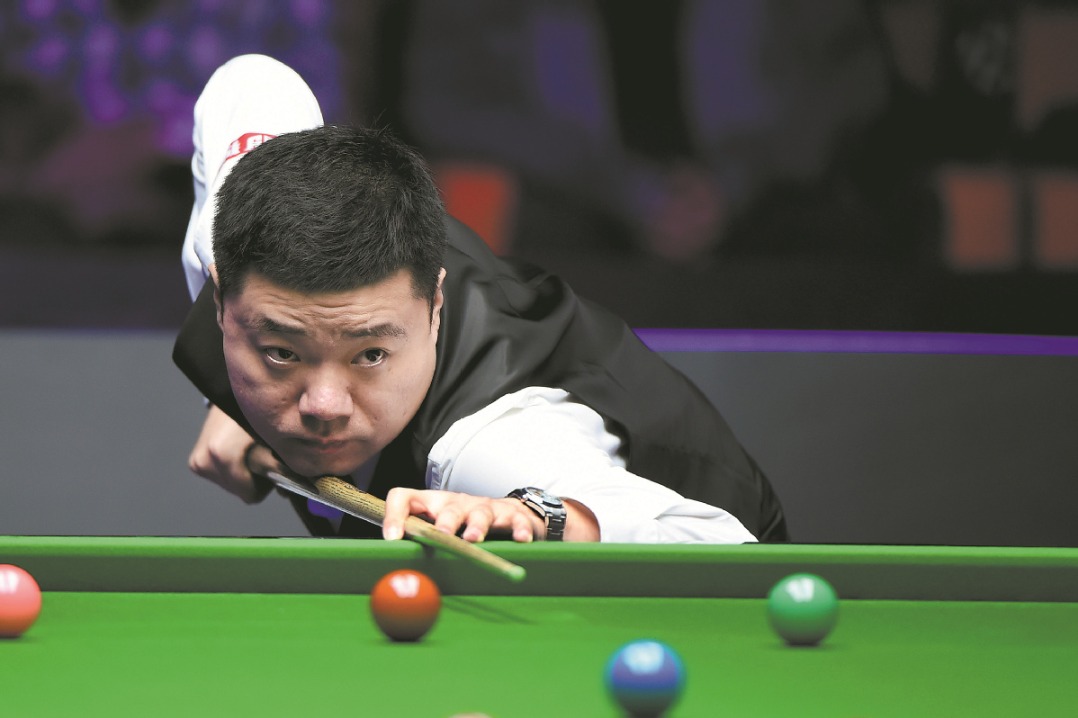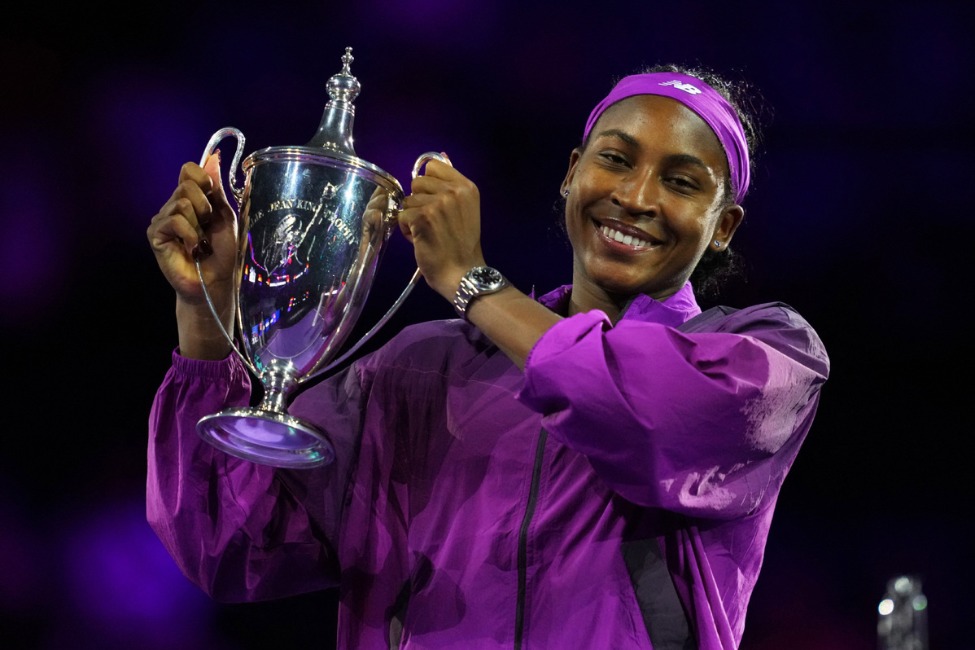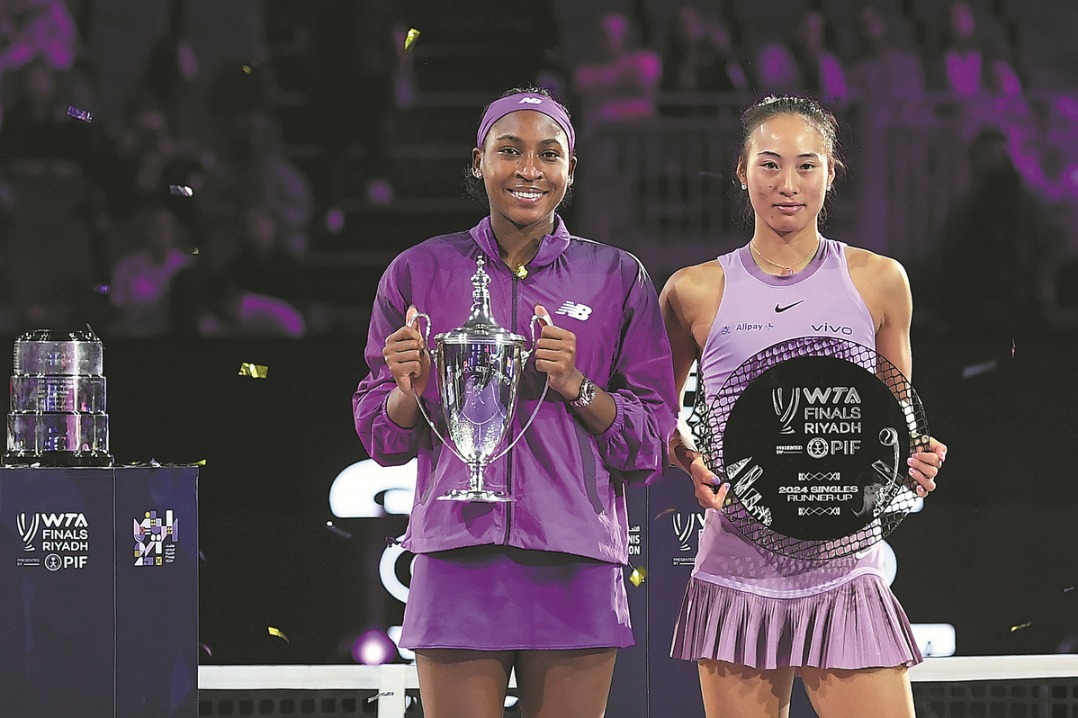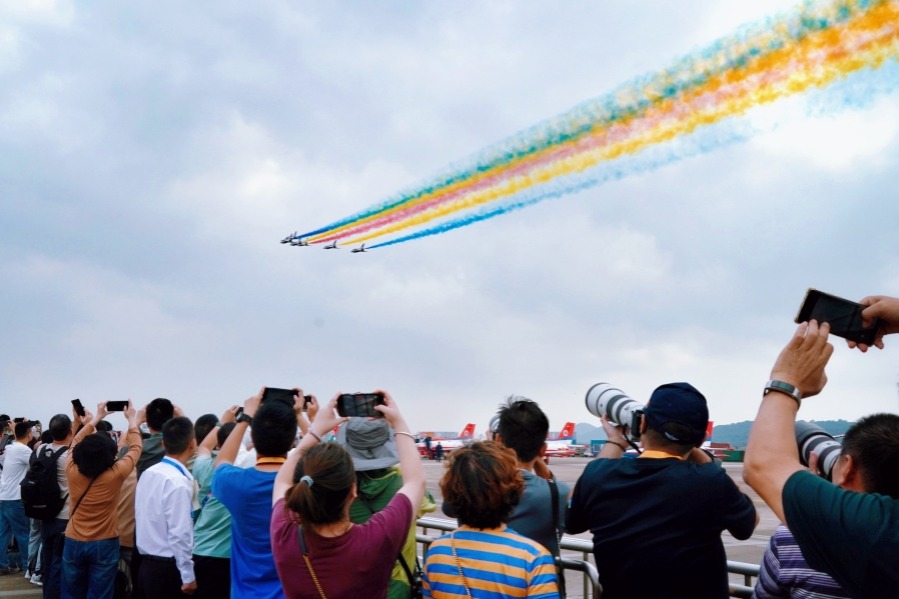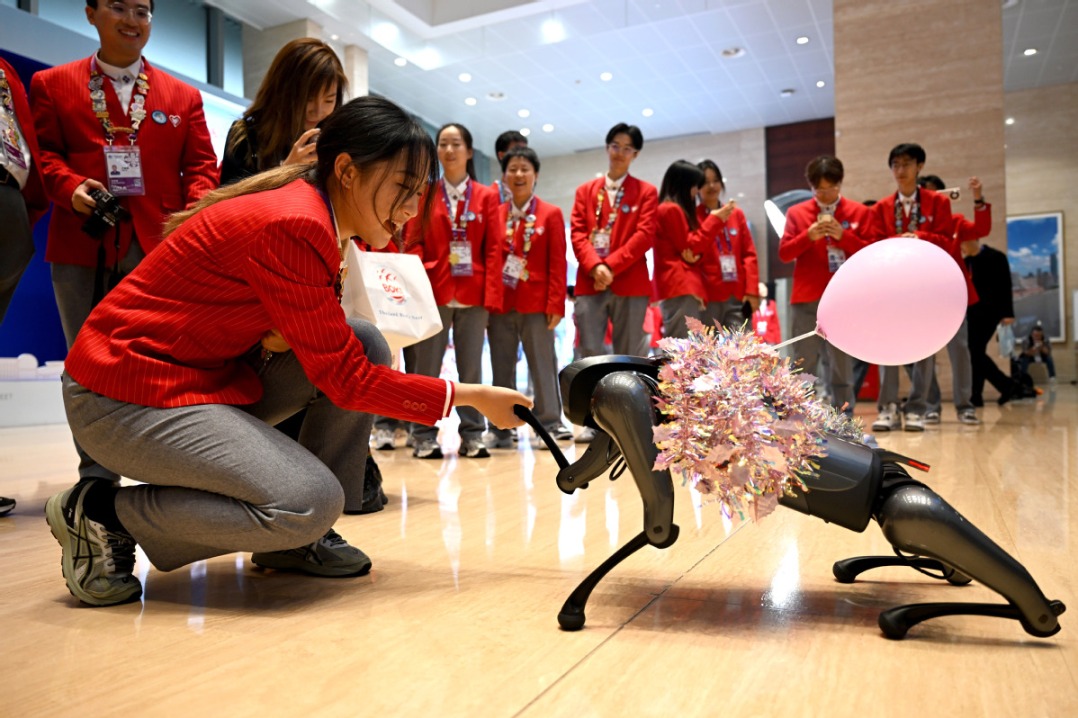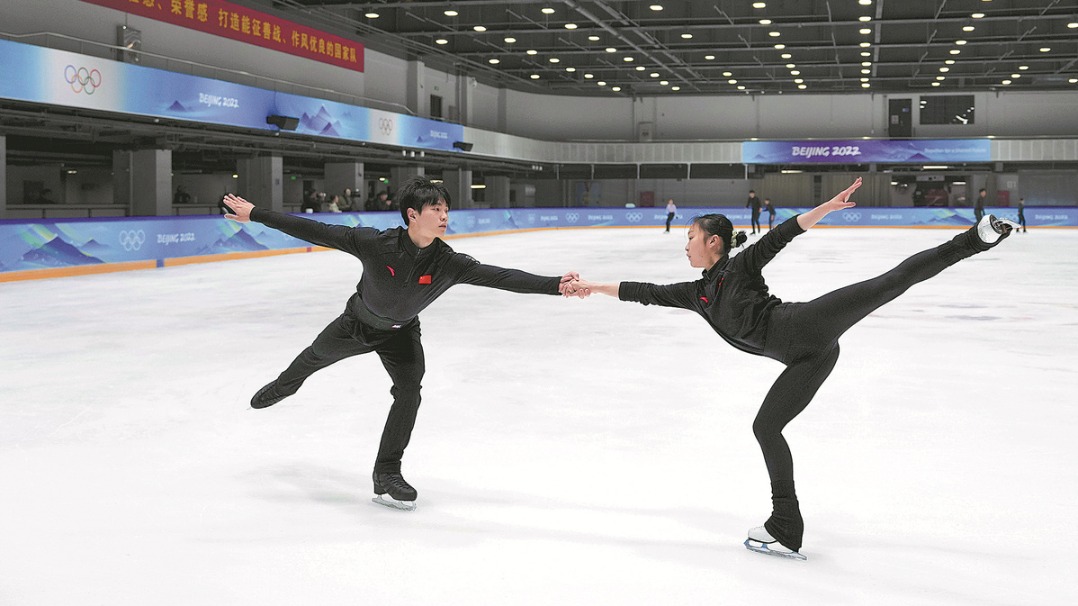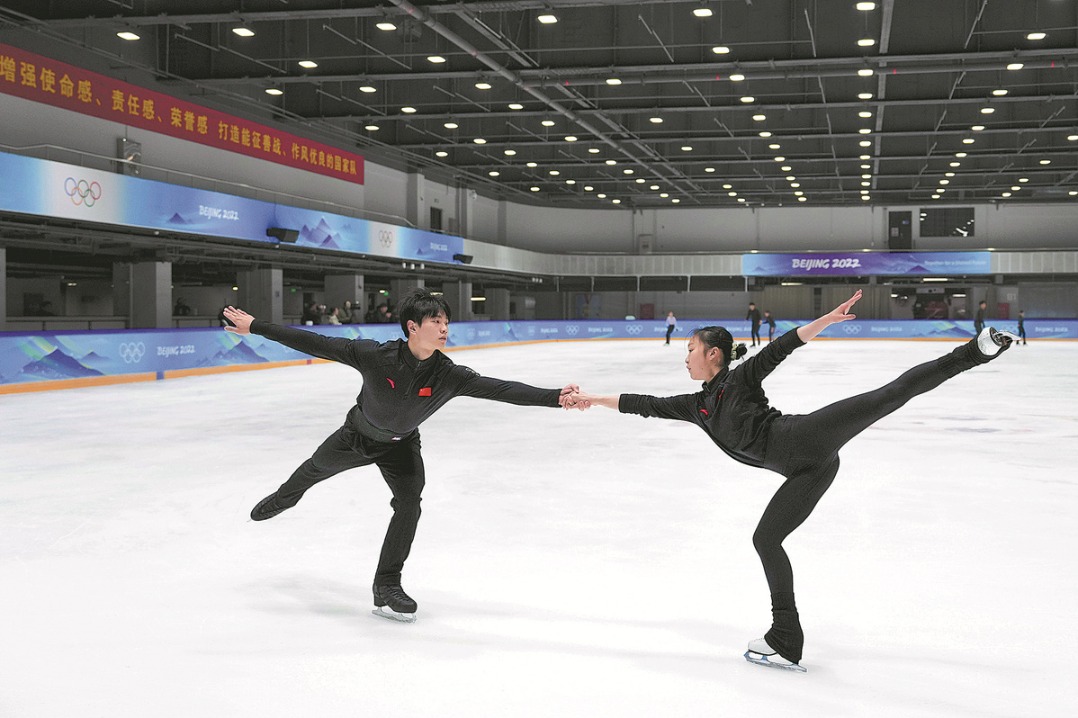Long road to Paris glory begins

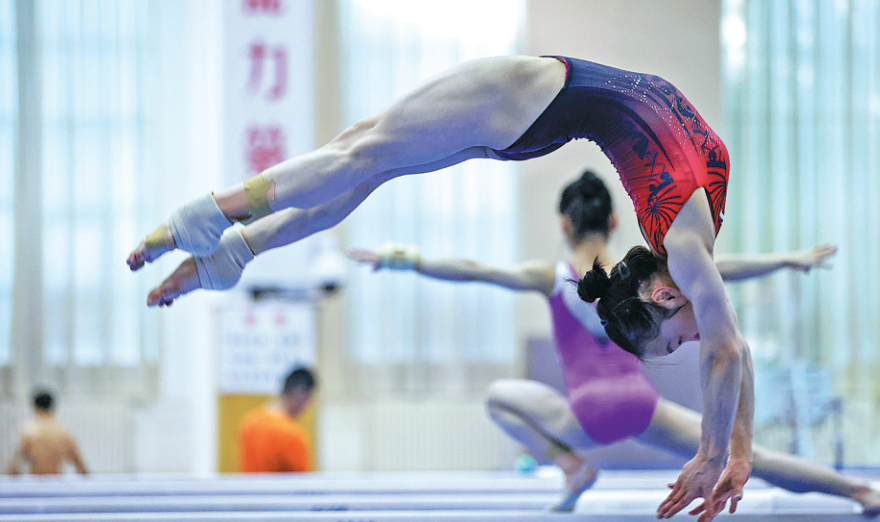
Two years out from the Paris Olympics, China's national gymnastics teams are already beginning to take shape, with increasingly scientific training methods honing the next generation of stars.
The artistic, trampoline and rhythmic squads recently completed a tough round of "winter training" which placed an emphasis on strength conditioning before more detailed work on technical elements begins.
"When we reviewed our trip to the Tokyo Olympics last year, we realized the importance of continuing to level up the physical strength of the gymnasts and working on the various shortcomings of individual athletes. We believe this was the key reason behind our great performances in Tokyo," Ye Zhennan, the deputy director of the National Gymnastics Sports Administrative Center, told China Sports Daily.
With a blend of veterans and young stars, China's artistic gymnasts pocketed three gold, three silver and two bronze medals in Tokyo-a major upswing from the paltry total of two bronze medals at Rio 2016.
With the bar set high in Tokyo, improving on that haul in Paris will be far from easy. Ye says the sport's national governing body is helping all levels of local teams to develop their training methods in order to ensure a steady stream of young talent to the elite ranks.
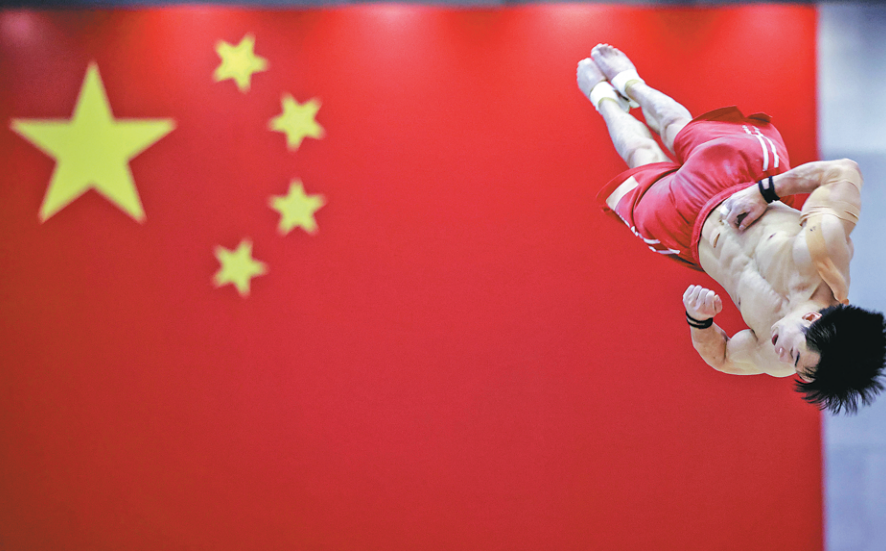
As for the winter training stint, Ye cites 22-year-old all-around world champion Zhang Boheng's progress as proof of its effectiveness.
"He has made great improvement in terms of physical strength," Ye explained. "On a deep squat, he can now handle a weight that is 2.6 times heavier than before the winter training. In bench press, he can go about twice as heavier than before.
"So, he's really gone up a level. Before the winter training, Zhang was quite a way off the superstars of the world, but now he has reached the next level."
There's still plenty of time for Olympic hopefuls to prove themselves before any selection decisions are made for Paris 2024. In the meantime, both veterans and the next gen will keep grafting.
"With the new rules and trends of the sport in mind, we hope to maintain and build on our tradition as a strong gymnastics nation," said Ye.

The Chinese trampoline team also enjoyed a fruitful campaign in Tokyo, coming home with one gold and two silver medals. Over the last few months, the squad tried out new training methods, with the focus on strength work.
A hugely valuable addition to the coaching team is Dong Dong, who has won four medals across four Olympic Games, including a gold at London 2012 and a silver at Tokyo 2020. The 33-year-old hopes to pass on such elite experience to help China's new generation of talent to flourish.
"Leveling up strength conditioning was one of the main goals of our training, which will lay a solid foundation for our future preparations for the Paris Olympics," said Dong.
"We arranged physical training from Monday to Saturday each week. As for trampoline athletes, the key is to level up lower limb strength.
"Then we tailor training plans based on the needs and requirements of individual athletes, and that includes recovery plans for anyone who is injured.
"We also conduct regular aerobic and anaerobic tests, such as 3,000-meter runs, 30-meter sprints, cycling, deep squats and the bench press."
Dong said that during his 19-year trampoline career, he learned the importance of strength conditioning, which contributes to better body control as well as helping to avoid injuries.
"We have carefully designed our physical training to fit the needs of trampoline athletes. As coaches, we meticulously monitor athletes' technique to ensure they are performing the exercises correctly to engage the right muscles. In that way, we ensure training is as efficient as possible," Dong added.
China's rhythmic team last stood on the Olympic podium at the 2008 Beijing Games. It came close in Tokyo, finishing fourth, so the team is making no secret of its desire to get back among the medals in Paris. Just like the other national squads, there's no quick fix or easy route to glory.
"Sometimes the training lasts 10 to 12 hours a day," the team's coach, Sun Dan, told China Sports Daily.
"It's inevitable for our sport, as athletes need to spend a lot of time together to gel. The current stage of training is pretty tough for them."
The retirement of a number of veterans after the Tokyo Games has prompted a rebuild of the rhythmic team. The oldest athlete is 24 years old and the youngest is only 17, with the age gap presenting additional challenges.
"The young athletes have good physical strength, which is a good foundation for the future. But there are new trends and rules in this sport, which means new requirements on the athletes. So, we have updated our training programs accordingly."
Team China will be able to gauge its progress at September's Asian Games in Hangzhou, Zhejiang province, where the host will be aiming to top the medal table.
Most Popular
- Barcelona bemoans 'big mistake' in Real Sociedad defeat
- Brown calls Giannis 'a child' after handshake shenanigans
- It doesn't feel like goodbye, says Van Nistelrooy
- Arteta: Troubled Arsenal must 'show their teeth'
- Frustrated Medvedev melts down in opening loss to Fritz
- Ding takes cues from home crowd
















